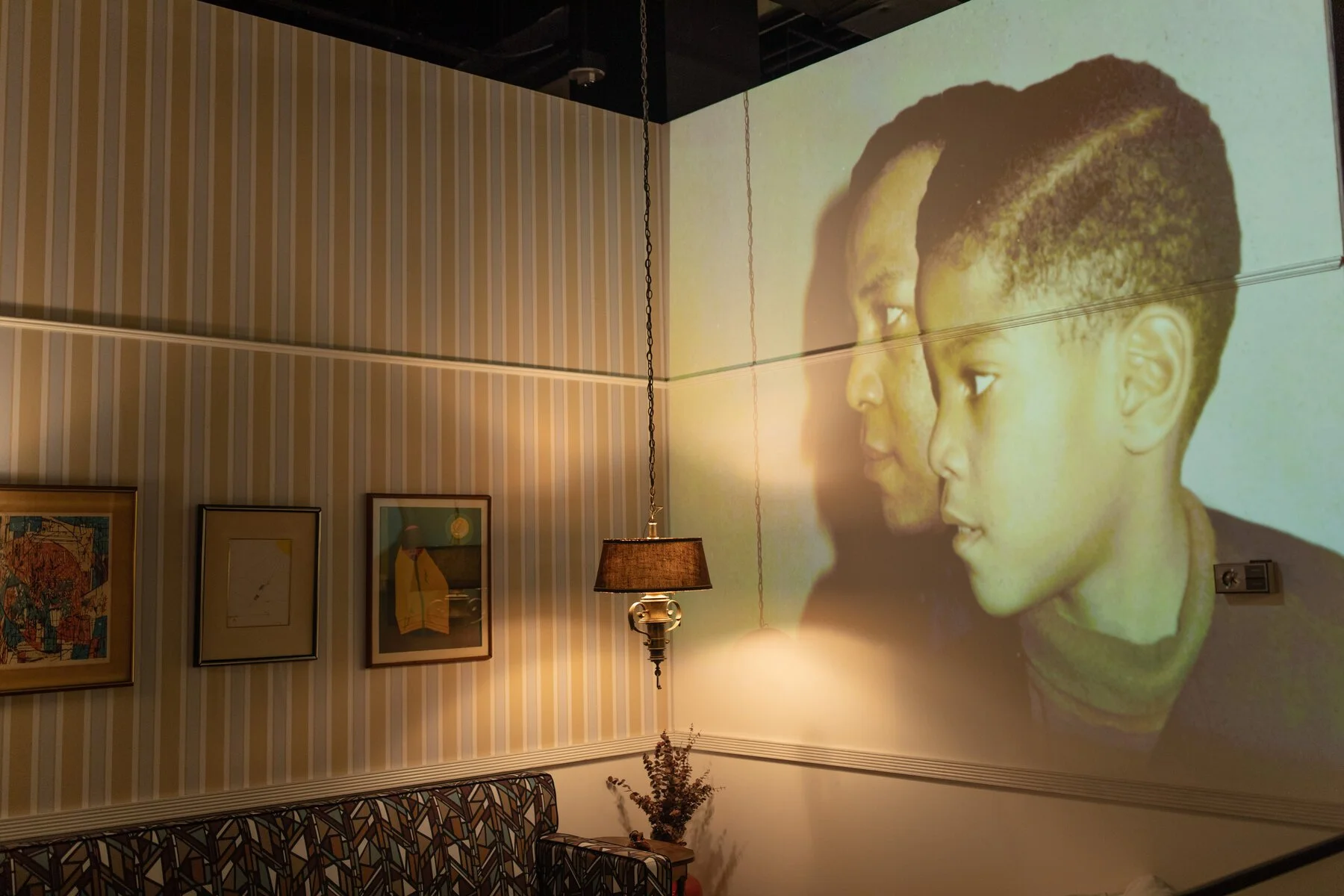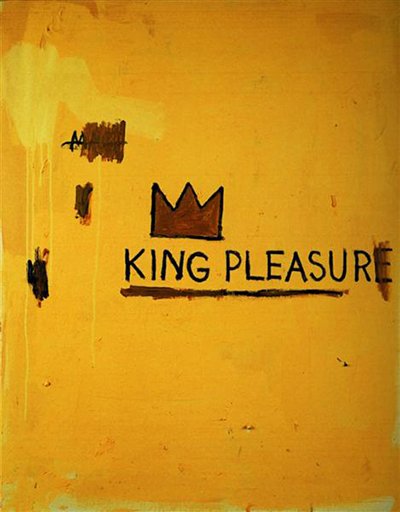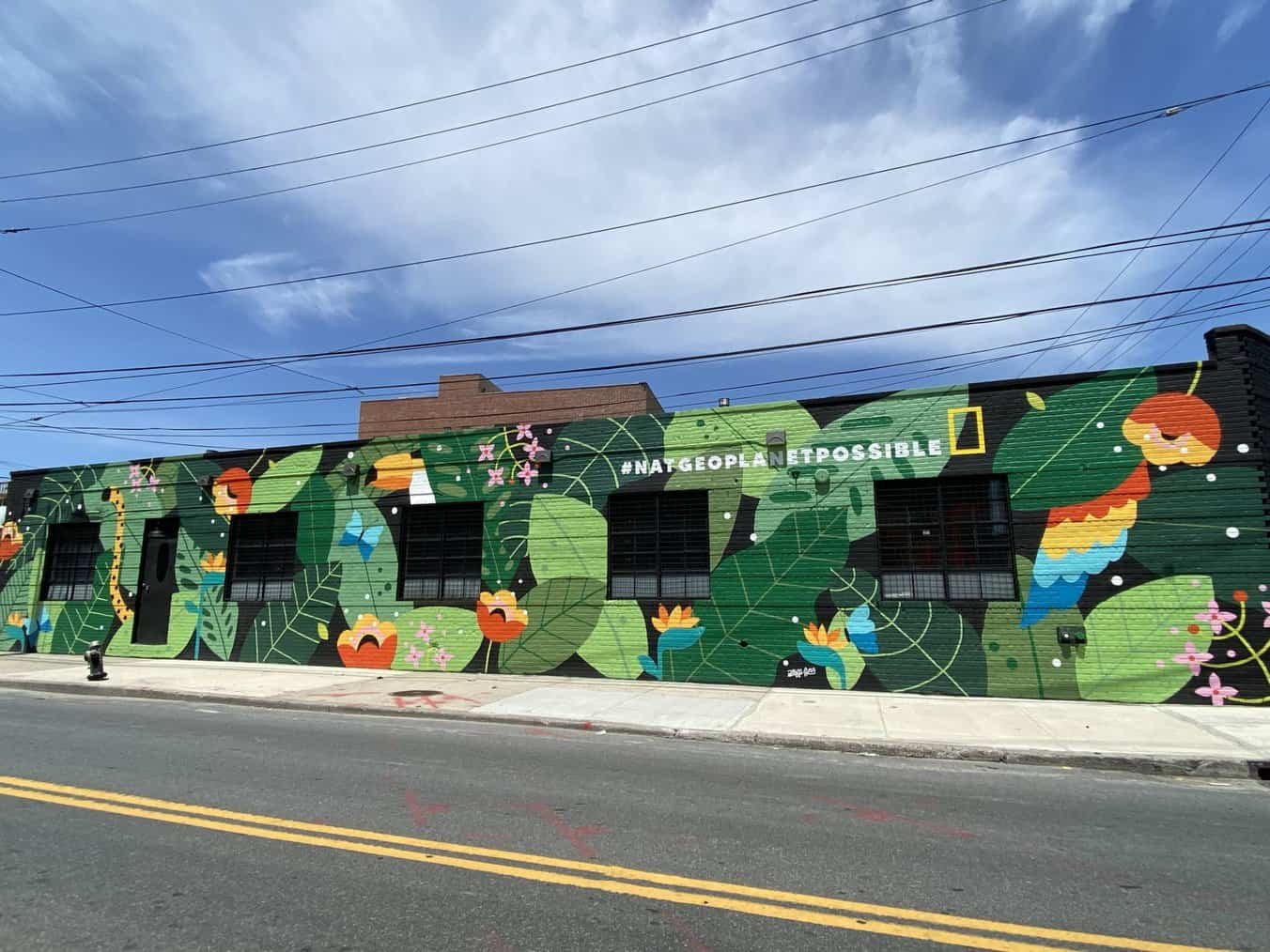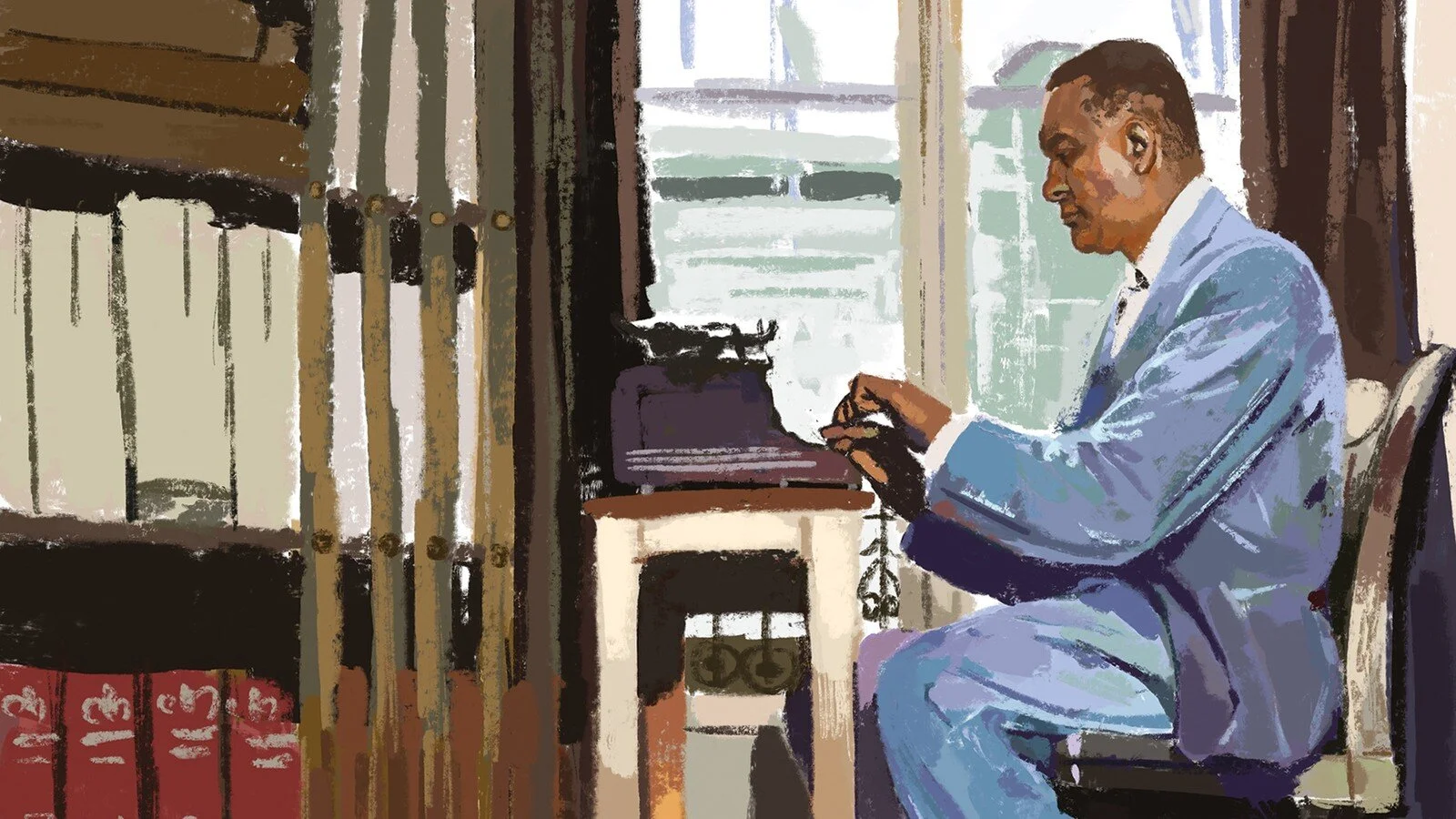Sourced from NPR | May 4, 2022 by Anastasia Tsioulcas
1983 photo of then 23-year-old artist Jean-Michel Basquiat | Lee Jaffe/Courtesy of the Basquiat family
A recently opened exhibition in NYC celebrates the beloved artwork of artist Jean-Michel Basquiat. The show includes 200 of never seen before paintings, drawings, and artifacts. These have been put on display by his sisters allowing us to get a glimpse of his intimate, familial look at the artist's life and career.
These rooms are built to showcase the "Jean-Michel Basquiat: King Pleasure" exhibition that recreates specific places from his life. Like a VIP room in a club, there are studded with photos of the young artist enjoying the high life with his celebrity pals and also TWO massive panels that Basquiat had painted for the club.
One of the panels Basquiat created for the now-shuttered Palladium nightclub in Manhattan, now installed at the "King Pleasure" exhibition.
Courtesy of the Basquiat family
In the early 1980s, Lower East Side visual artists and musicians all happily collaborated and worked together on projects. Basquiat had his own experimental band called "GRAY" that he founded with filmmaker Michael Holman, another GRAY member was actor and director Vincent Gallo. One of Basquiat's friends and early buyers was singer Debbie Harry of Blondie. She cast him as a DJ in the video for Blondie's song "RAPTURE"; in the video, he appears as she begins rapping about their mutual friend (the Fab5 Freddy!)
Debuting in 1981, Rapture was the first rap video ever broadcast on MTV. It took place in the East Village
Running time: 45:45
Another space in the show is a recreation of Basquiat's studio on Great Jones Street, a space he rented from his friend and collaborator Andy Warhol. The room is scattered with paintings and art books all open on the floor. There are TV show clips from some of his favorite movies and music heroes Miles Davis is playing in the background. Basquiat's trench coats are hung up, a potent reminder of the missing artist, who died in 1988 of a heroin overdose at 27.
"King Pleasure" exhibition recreation of Basquiat's studio at 57 Great Jones St. in Manhattan | Ivane Katamashvili/Courtesy of Basquiat family
These recreations are just one of the many ways where this isn't just a typical fine arts exhibition. "King Pleasure" was curated by Basquiat's sisters, Lisane Basquiat and Jeanine Heriveaux, who look after their late brother's estate.
Lisane describes the show as immersive and offers a unique perspective on Basquiat's life. People who appreciate Jean-Michel's work now get a fuller understanding of who this man was on a personal level - where he came from, the family that he was brought up through, and the context in which he started his journey.
Alongside the paintings and drawings, the show includes many mementos of their family life. The main draw is still his art. The exuberant colors. The smart and cynical phrases he rendered in his text on his canvases. Centuries of artistic and historical references crammed next to skulls, anatomical drawings, and cartoon-ish cars, ideas are pinging off each other just like the music he loved.
"For him, it was very important that Blacks were portrayed in a positive light," Jeanine says, "And so I think that the main reason that not only did he crown himself, he crowned those heroes." Heroes like Jessie Owens, Joe Louis, and one of his particular idols, saxophonist Charlie Parker.
"King Pleasure" is a chance for the public to see many works that they wouldn't have gotten to see otherwise, "I thought it was a wonderful display of quantity," she notes. "When you're talking about Basquiat, 90 percent of his works are in private collections, and most of those are in Europe."
Tickets for "Jean-Michel Basquiat: King Pleasure" in New York are currently on sale through the beginning of September.
read the
full story
A 1982 portrait of Basquiat by photographer James Van Der Zee.
James Van Der Zee/The Metropolitan Museum of Art

















